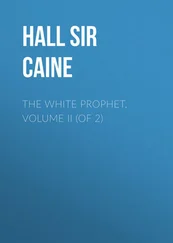Charles saw Burgundy riding behind the King in a mantle sparkling with jewels; he bore himself as though it were he who was being led to his coronation. Charles watched him attentively; he asked himself if the whispers he had heard were true: that Louis, now that he had become King, did not appear prepared to grant to his protector Burgundy the place of honor on the Council and in the government which the latter had expected. It seemed that a violent disagreement had arisen between Louis and Burgundy’s son Charolais. Moreover, the new King of France had declared curtly that he frankly found it excessive that Burgundy should escort him to Paris with a veritable army of courtiers and armed men; surely the King of France could count on a good reception without that.
Charles considered himself fortunate that he could now bid farewell to court life; he had no obligation whatever to King Louis, who most probably would have no further need of him. He was, thank God, too old for politics and diplomacy. With philosophical submission he allowed the stream of festivities and ceremonies to pass over him. While others danced and drank and did themselves only too well at the beautifully-decorated buffets heaped with fabulously costly food, Charles sat in a quiet corner, listening to the music. He remained in Paris chiefly to give Marie the opportunity to take part in the courtly amusements. She had, he thought, lived so long in seclusion; she deserved to go dancing adorned like a princess. But after a few weeks Marie announced that she had had enough of all these tournaments, pageants and banquets; she wanted to go home to her child.
Charles’ thoughts too were incessantly with his small daughter, the more so since the King had let it be known in a manner which brooked no contradiction, that it was his intention to request the hand of Mademoiselle d’Orléans for his younger brother. Charles understood all too well where this must lead: if the King had made up his mind, Orléans would fall under his control once again.
In the spring Charles and his wife reached Blois, where they were overjoyed to find everyone well and everything in good condition. A few days after their return Marie, smiling, approached her husband who was standing in the library looking at a new manuscript.
“What is it, ma mie?” Charles asked absently; he did not look up from the richly illustrated page.
“Monseigneur,” said Cailleau, carefully straightening the sleeves of his robe, which he had pushed up above his elbow. “Monseigneur, do you recall that we once — ten, twelve years ago — made a wager?”
Charles and the physician stood in one of the anterooms to Marie’s bedchamber. Charles had announced that he would wait there while his wife was in labor. From time to time Cailleau came to tell him how the labor was going; there was, he repeated emphatically time and again, no reason at all for alarm.
“Wager?” Charles, who was constantly straining to catch sounds from the closed lying-in room — was it really going well with Marie? — could remember nothing about it. Cailleau kept his head bowed low while he fastened the laces of his sleeves.
“Yes indeed, Monseigneur. When I once told you that you could still have an heir, you wagered five hundred livres that that would never happen. My lord,” he looked up, no longer able to suppress his delight, “my lord, I cannot tell you how pleased and thankful I am to be able to come now and tell you that you have lost your wager. Your wife has just given birth to a son.”
The church bells pealed in Blois, Beaugency and Orléans, in all the cities and villages along the Loire. Flags and banners fluttered blue and gold against the summer sky, heralds traveled everywhere across the land to proclaim to the sound of clarions what the people along the roads already knew: that in the castle of Blois a son, an heir, had been born to Orléans. Those who visited Blois in those days saw that Monseigneur behaved as though he were rejuvenated; he still did not know how to express his delight. He distributed rich presents to everyone who came to congratulate him and entreated each one to pray for the child’s well-being; he considered the birth of his son to be a miracle. While the bells of the district rang out, the infant was rocked to sleep to the tune of an old nursery rhyme — just as Charles himself had once been rocked:
Orléans, Beaugency,
Notre Dame de Cléry,
Vendôme, Vendôme!
Hark, we peal — what sorrow—
All day, all night — willing or not,
All hours, all hours!
Charles ordered everything to be made ready for the christening ceremony. The boy would be called Louis after his grandfather; his godfather must be his nearest blood relation — in this case, to Charles’ annoyance, it was the King.
He hoped and expected that the King would refuse the invitation, but now it appeared that he had misunderstood his sovereign’s character. Louis XI came, although in a far from benevolent mood. He, who as Dauphin had made use of the services of the discontented vassal princes and the ambitious nobility, had, after his accession to the throne, acted against this group more mercilessly than his father had ever done. Ignoring their objections and complaints, he had curtailed their privileges and restricted their independent control of their own territories. During the time when he was still feigning friendship for the great lords, he had learned many things which now proved very useful to him.
He had them in his power, he found their rage and disappointment amusing, but he remained on his guard. He knew quite well that they were conspiring against him; his excellent network of spies had given him all the names and facts which he needed. He bided his time, paying no attention to the hatred of the feudal princes. He had never heard the name of Orléans connected with talk of conspiracies; he suspected, however, that Charles would reveal signs of ambition now that he had a son.
On the way to Blois, the King had summoned one of his trusted retainers and asked him acidly, “How much truth is there in the little tale which I hear is spreading in Orléans and Touraine? Did Orléans predict that his son would wear the crown of France?”
The man could report only that an old woman had indeed said something like that to the Duke of Orléans.
“Hm,” said the King curtly. “My worthy uncle of Orléans may be a dull old fellow, but apparently he has not been too dull and too old to make his wife pregnant. Keep an eye on him, the grey …” The King swallowed the epithet and signalled his servant to withdraw.
On his arrival in Blois, the King did not want to waste his time on compliments and ceremony. The baptismal procession was formed at once in the courtyard near the donjon; from there the noble company, preceded by torchbearers, set out for the church of Saint-Sauveur in the great castle yard where the Archbishop of Chartres welcomed the royal company.
The King, his lips pursed in an expression of slight aversion, held the child over the baptismal font; the infant, alarmed by the touch of less than loving hands, did what would, under other circumstances, have caused no comment. The King quickly delivered the baptized baby to his nurse, wiped his sleeves and said with a sour laugh, “Look what this child — his only achievement is to come into the world — Look what he dares to do!”
Charles apologized hastily for his son, and suggested that they move to the lying-in chamber, where the Duchess awaited the guests. The King walked ahead with his somewhat shuffling gait; apparently he felt no compulsion to laugh or make friendly jokes. He greeted Marie curtly, complained to her about her son’s misbehavior and refused to remain in Blois for the christening feast. As he turned to quit the chamber, he stumbled over one of the tapestries which hung from the bed to the floor.
Читать дальше












